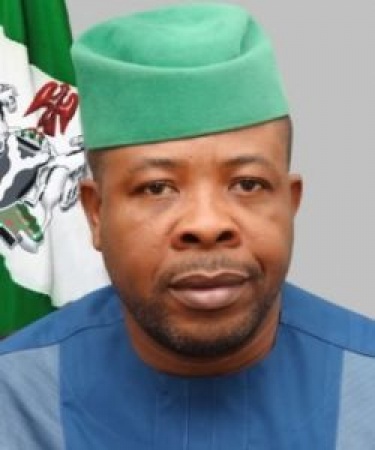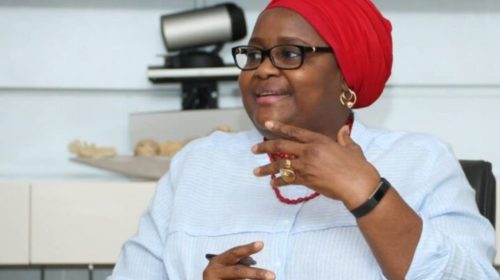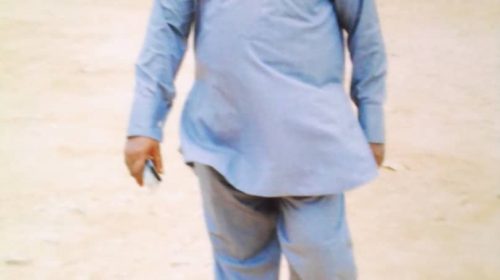Fresh tension in Imo over governorship case

By Ngozi Onyeakusi — Following Hon. Emeka Ihedioha’s application at the Supreme Court for the review of the apex court’s judgment that sacked him as Imo State Governor, and the court’s agreement to hear the matter on February 18, 2020, some observers of Imo State politics have expressed concern over the overall effect of the prolonged intrigues on Imo people.
Since the take-off of the campaigns for the last governorship election in Imo, the state has witnessed high wired politics that have undoubtedly taken a great toll on the governance of the state. Some observers alleged that the power game in the state’s all Progressives Congress (APC) over the successor of former governor Rochas Okorocha, affected governance greatly towards the end of Okorocha’s tenure. So, when the governorship election finally held on, concerned observers called on the political class to stand above petty politics in the overall interest of the people of Imo State. But this has not been so following the prolonged legal battles over the duly elected governor of the state.
First, Rt. Hon. Emeka Ihedioha of Peoples Democratic Party (PDP) was inaugurated governor and later Senator Hope Uzodinma of All Progressives Congress (APC) was inaugurated as the duly elected governor following Supreme Court’s ruling.
So, when Ihedioha returned to the Supreme Court, seeking a review of the matter, observers wondered when the tension and intrigues in Imo State will end to give way to real governance.
Premised on eight grounds, Ihedioha has, in his application filed on Wednesday, alleged that the apex court did not take into cognisance the Appeal Court judgment which dismissed Uzodinma’s appeal.
He therefore wants the Supreme Court to return him as the duly elected governor of Imo.
As would be expected, the Supreme Court’s decision to review the Imo governorship election petition has generated so much interest in Imo and beyond. The supporters of both the ruling APC and PDP are everywhere explaining why the apex court will give it to their candidate. But one major issue that most commentators have not denied is the fact that though there are cases in foreign countries, like the United States of America, where the Supreme Court has reversed itself, it is not certain that this has been the case in Nigeria.
Of course, in Nigeria, there have been precedents where litigants returned to the apex court after it has ruled on their matter. So though this kind of petition is not unprecedented, there seems to be serious doubt if the learned justices will reverse themselves this time.
Even in the USA where such reversals have occurred, it was discovered that for such a reversal to be authoritative, it has to be overturned by the Supreme Court itself (usually much later when different justices are part of the court). If the SCN is to borrow this tradition, it remains to be seen if it will elect new justices to handle the matter and even if it does, if within such a short period of time, the new justices will reverse the judgment.
Aside Kobina Johnson and other vs Irene Lawanson and other, which is one of the earliest cases in which the Supreme Court of Nigeria was asked to reverse itself in 1971, some of the most popular political cases that attracted such precedence included the Amaechi vs Omehia case and Ubah v INEC case.
It would be recalled that in December 2006, Rotimi Amaechi contested and won the Rivers State Peoples Democratic Party, PDP, governorship primaries. Unfortunately, due to inter-party squabbles, his name was substituted with Celestine Omehia before the governorship election.
So, early in 2007, Amaechi filed a suit challenging the alleged injustice. The matter dragged to the Supreme Court, which gave judgment on October 25, 2007 and held that “Amaechi was wrongly substituted with Omehia by PDP and that in the eyes of the law, Amaechi who didn’t contest the election was at all times the legal candidate of PDP at the elections.”
So, Amaechi was declared as Governor of Rivers State by the Supreme Court. According to Johnson Usim, a legal practitioner in Lagos. “When Omehia re-appealed to the apex court to review its judgement, the seven-man panel led by Justice Alloysius Kastina-Alu not only dismissed the matter but described the suit “as frivolous and an act of judicial rascality.” They also awarded N100, 000 cost.
“Also in Ubah v INEC when Uba filed an application alongside INEC and the governorship candidate of the Nigeria Advanced Party, NAP, in 2007, Mr. Ifeanyichukwu Okonkwo, seeking to set aside its earlier judgment delivered on June 14, 2007, which declared Mr. Peter Obi as the legal occupant of the Anambra State Government House, the court described the action as “an effrontery to ask it to reverse itself in a case it had determined.”
Also citing these same precedents, Timothy Ukachuku, a legal practitioner, told The Nation on Friday that it is unfortunate that Imo State have continued to groan under politics when other states have moved on with governance. “I do not want to pre-empt the Supreme Court on this matter. All I will say is that it is unfortunate that we have to go the whole hog. Politics should be seen as an aid to power acquisition not a do-or-die affair. I do not expect this matter to continue to drag. Our people are the losers. It is the tax payers’ money that is being wasted. My only consolation is that whatever the Supreme Court pronounces this time around will be the final full stop. We cannot continue this way.”
Also, the Imo State Chapter of Oil and Solid Mineral Producing Area Landlords’ Association of Nigeria (OMPALAN), in their reaction at the weekend asked the People’s Democratic Party (PDP) to stop distracting Governor Hope Uzodinma from delivering the dividends of democracy to the people of the state.
The State Chapter Chairman, Chief Chibunna Ubawuike, stated this in Abuja while reacting to developments in Imo State.
He alleged the protests being staged by PDP in the state were deliberate attempts to distract the governor from fulfilling his mandate to the people.
But Chidi Obinna, a PDP supporter, said the acceptance of the case at the Supreme Court confirms the fact that there is need to review the judgement.”
Mrs. Patience Madu, a woman leader in Owerri, however said “no matter how you look at the matter, it is obvious that this prolonged litigation will ultimately rob off on the common people. I hope after this judgment, no one will make us to go through these again. We want governance not just politics for its sake.” (The Nation)






Leave a Reply